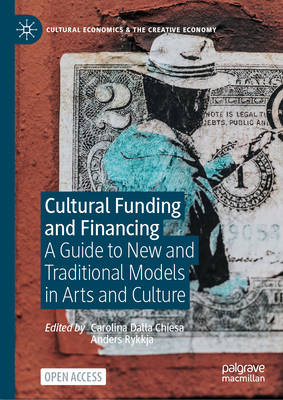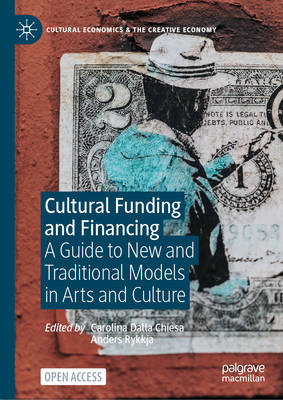
- Afhalen na 1 uur in een winkel met voorraad
- Gratis thuislevering in België vanaf € 30
- Ruim aanbod met 7 miljoen producten
- Afhalen na 1 uur in een winkel met voorraad
- Gratis thuislevering in België vanaf € 30
- Ruim aanbod met 7 miljoen producten
Zoeken
Cultural Funding and Financing
A Guide to New and Traditional Models in Arts and Culture
€ 52,95
+ 105 punten
Omschrijving
This edited open access volume offers a comprehensive analysis of new and traditional funding models for the arts and culture. In the economic and political contexts of reduced art funding, the book takes an objective, pragmatic and heterodox approach to demonstrate how financial sustainability in the arts can be achieved via a range of top-down and bottom-up mechanisms which are valued either in terms of institutional or crowd-based legitimacy. The book aims to offer both a scholarly interpretation of established and emerging funding and financing practices within the cultural and creative sector, as well as guidance for artists, creators, and cultural programmers through various case studies and multiple examples of current practices. Contributions are divided into three sections. Section one outlines the most important traditional tools and models, while the second part covers the key contemporary practices premised on the use of digital platforms, and the final part introduces several case studies. The objective of this volume is to demonstrate that while traditional models show no signs of being supplanted, digitalisation has facilitated the emergence of new forms. Such an evolution has consequences for creators of works as well as those willing to support them. The contributions address these issues by investigating and analysing the individual or combined adoption of traditional and new funding and financing models in a post-digital context.
Specificaties
Betrokkenen
- Uitgeverij:
Inhoud
- Aantal bladzijden:
- 431
- Taal:
- Engels
- Reeks:
Eigenschappen
- Productcode (EAN):
- 9783031966958
- Verschijningsdatum:
- 4/01/2026
- Uitvoering:
- Hardcover
- Formaat:
- Genaaid
- Afmetingen:
- 148 mm x 210 mm
- Gewicht:
- 693 g

Alleen bij Standaard Boekhandel
+ 105 punten op je klantenkaart van Standaard Boekhandel
Beoordelingen
We publiceren alleen reviews die voldoen aan de voorwaarden voor reviews. Bekijk onze voorwaarden voor reviews.






